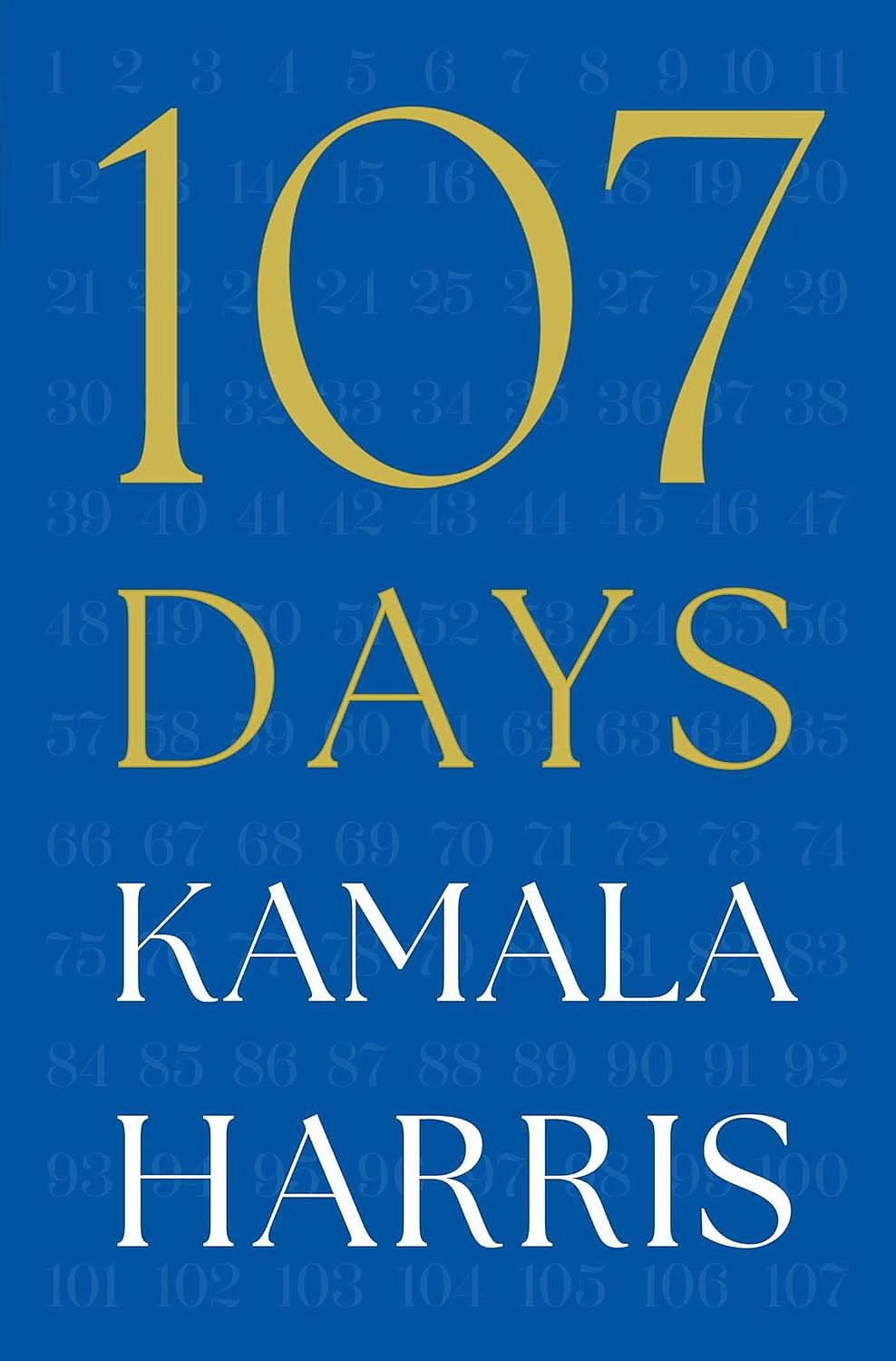Book Review: Kamala Harris’s '107 Days' — A Candid Look At Her 2024 Presidential Run
Kamala Harris’s latest book, 107 Days, chronicles one of the shortest and most intense presidential campaigns in contemporary American politics—her three-month run for the presidency in 2024. The number in the title announces everything: this is a story measured not in years or even seasons, but in urgent, fleeting days.
From the opening pages, the pressure is palpable. Harris details the sudden shift that placed her at the heart of a national race following President Joe Biden’s exit from contention. Rather than presenting a triumphant tale, she offers an intimate examination of someone navigating extraordinary challenges—internal party divisions, uncertain support from key figures, and persistent media doubt.
Her prose is measured and deliberate, suggesting an awareness that every sentence invites scrutiny. She takes readers through tactical discussions, debate rehearsals, fundraising scrambles, and the complex decision-making around selecting a vice-presidential partner—all compressed into an impossibly brief window. What emerges is a revealing look at contemporary political campaigns that balances relentless momentum with genuine humanity.
The memoir’s greatest strength lies in its willingness to expose doubt and weariness. Harris doesn’t hide behind political armour. She describes sleepless nights filled with uncertainty, moments when trusted colleagues disappointed her, and the quiet determination needed to project confidence despite harsh public criticism. The book’s most powerful passages focus not on legislation or strategy but on personal struggle—intimate conversations with her husband Doug, or mornings when summoning a public smile required genuine courage.
However, the book stumbles in places. Harris occasionally shifts into defensive mode, suggesting her campaign suffered from internal party reluctance and entrenched power structures among Democrats. While this critique may contain validity, its recurring presence can feel less like introspection and more like grievance. Certain sections also carry the polished air of campaign rhetoric, weakening the impact of her more unguarded moments.
The day-by-day structure mirrors the campaign’s countdown, creating urgency but sometimes breeding monotony. The narrative would benefit from more moments where Harris steps outside the immediate chaos to explore broader questions about authority, gender dynamics, and contemporary American leadership. That said, sharp observations do surface—particularly her examination of the harsher standards applied to women seeking power, or how political allegiance often follows expedience rather than principle.
Unlike The Truths We Hold, her earlier memoir that painted in broad biographical strokes, 107 Days narrows its focus while deepening its revelation. Harris emerges less as the confident politician of carefully managed public appearances and more as someone wrestling with contradictions—caught between ideals and political reality, between determination and doubt.
The conclusion offers no neat resolution or satisfying closure—only weariness and contemplation. 107 Days captures a race that concluded prematurely while exploring what it demands to pursue leadership in an age dominated by cynicism and performance. Flawed but engaging, it prompts reflection on whether Harris’s true struggle wasn’t for political office at all, but for how she’ll be understood when the dust settles.

Book: 107 Days
Author: Kamala Harris
Publisher: Simon and Schuster
Pages: 320
Price: ₹899 (hardcover)
news